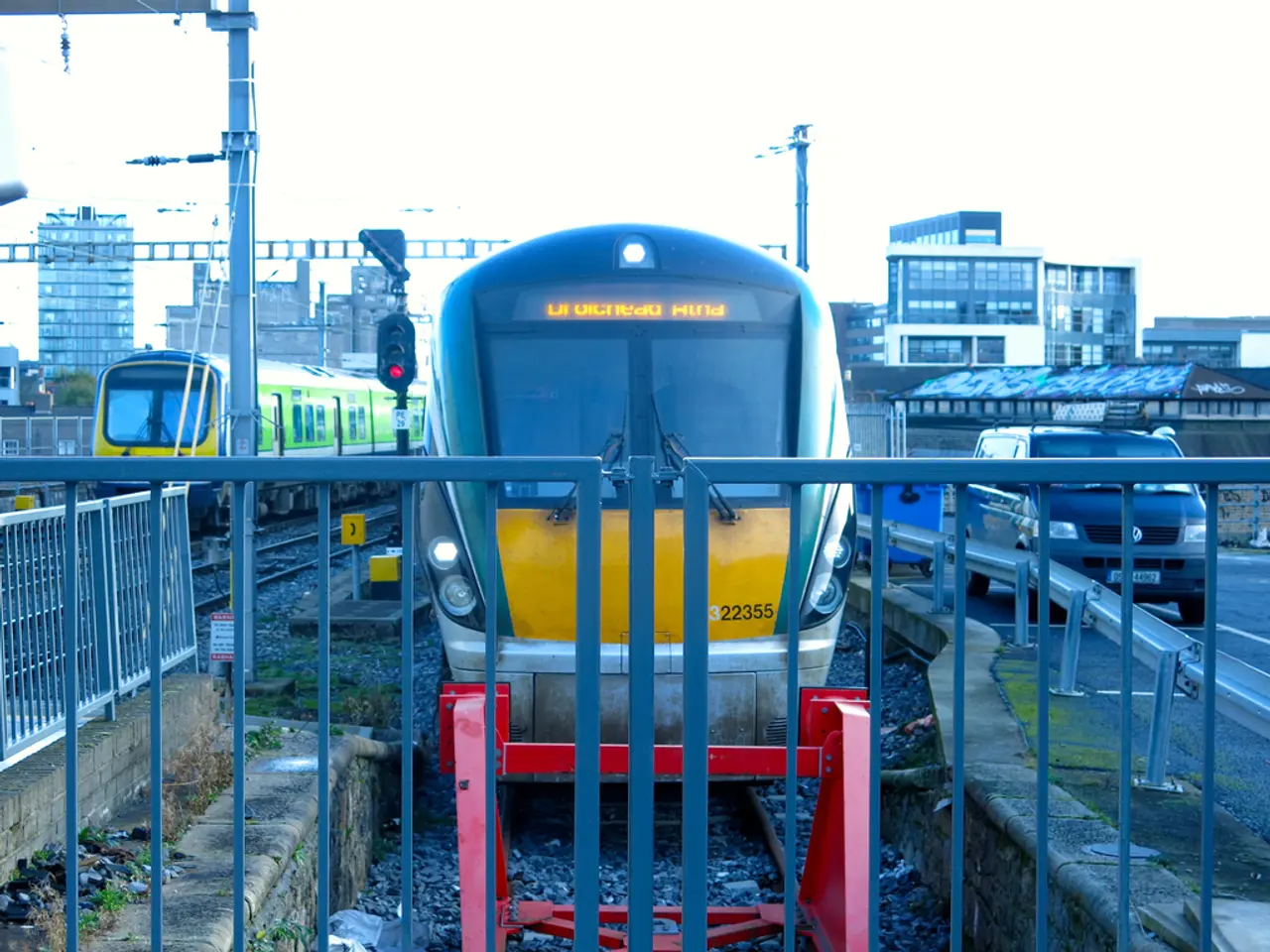High-speed railway development in the Northern region: Discussing speeds of 160 km/h versus 80 km/h - Expanding Railway Speeds in the Northern Region: Should We Opt for 160 or 80 Km/h?
The states of Brandenburg and Mecklenburg-Vorpommern are considering the expansion of their cross-border railway traffic, with two feasible options under consideration: maintaining the current speed of 80 km/h or upgrading to 160 km/h.
A study commissioned by both states has recommended the 80 km/h option as the preferred variant. This decision is based on the significant cost savings associated with the lower speed option.
Detlef Tabbert, Brandenburg's Minister of Transport, has stated that the 80 km/h upgrade is more economical. The first option, if implemented, would cost 248 million euros, a fraction of the 653 million euros required for the 160 km/h variant.
The "160 km/h" variant involves a through Regional Express (RE) from Berlin to Rostock, but it comes with a hefty price tag for Mecklenburg-Vorpommern, amounting to 394 million euros. The federal government could take over a maximum of 75 percent of the construction costs, leaving the states to bear the remaining costs.
The costs for the further planning of the expansion of the lines are to be borne by the states. The study examined potential on the railway lines between Neustadt (Dosse), Kyritz, Pritzwalk, Güstrow, Parchim, Malchow, and Waren/Müritz.
If the 80 km/h option is chosen, Brandenburg would receive 87 million euros. Many passengers would use the offer to travel directly from Berlin to the Hanseatic city, according to the potential analysis.
A mixed variant is also possible, but the specifics of this option have not been detailed in the study.
The railway connection is of great importance for the entire region in the northwest of Brandenburg and the south of Mecklenburg-Vorpommern. The desire for expansion has been clearly expressed from the regions, but the need for funding from the federal government is emphasized.
The SMA (State Ministers' Conference Transport, Building and Urban Affairs) will be the partner in the process. The decision on the railway expansion is on the agenda for the joint cabinet meeting in September.
Increasing the speed to 160 km/h would require significant upgrades to the railway infrastructure, including improved tracks, advanced signaling systems, and enhanced electric power supply. These upgrades would come with substantial costs, likely in the hundreds of millions of euros.
On the other hand, maintaining the current speed of 80 km/h would avoid the significant upfront costs associated with these upgrades. However, the lower speed might make rail transport less appealing compared to road or air transport for time-sensitive freight and passengers.
The 160 km/h option offers benefits like increased efficiency, economic growth, and reduced carbon emissions, but it comes with challenges such as high initial investment, noise and environmental concerns, and safety concerns. The 80 km/h option is more cost-effective but may limit the railway's competitiveness and capacity for economic impact.
As the search results do not provide specific cost figures or detailed analysis for this scenario, a precise cost comparison cannot be made without further data. However, the general considerations above highlight the trade-offs involved in choosing between these two speed options. The states are expected to make a decision in the near future, with the potential to significantly impact the railway network in the region.
Read also:
- German Obsession with Luxury Vehicles Thriving Amid Traffic Congestion
- Coastal men's disruptions of dolphin gatherings might lead to jail sentences
- Upcoming Rivian Models May Incorporate Wireless Steering Systems
- Electric car from Lucid unseats Chevrolet Corvette Z06 in awe-inspiring speed test performance.







